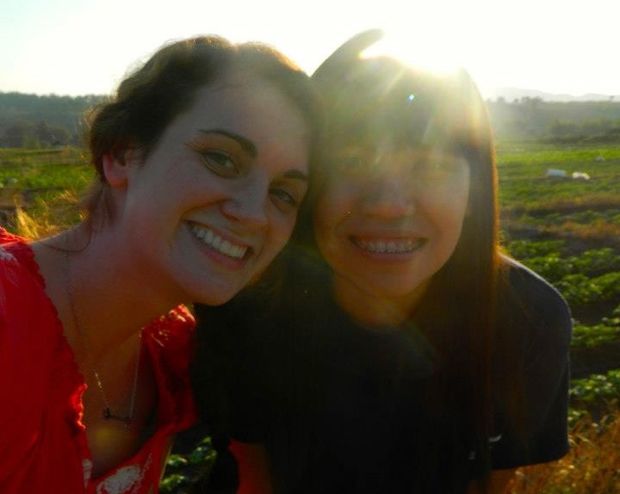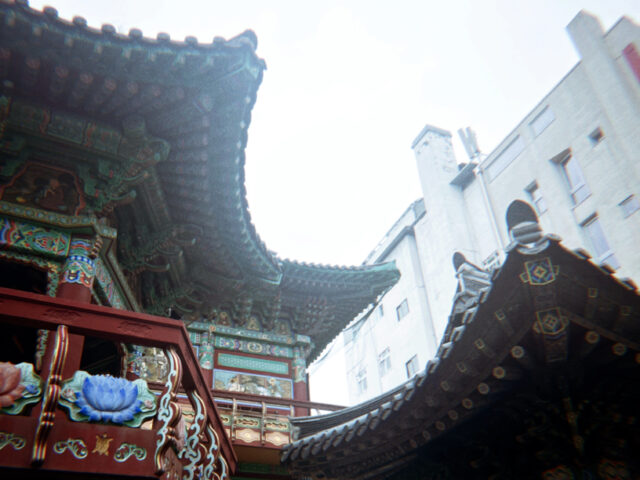Brynne Shannon is a student at the College of Charleston and a TEAN Featured Blogger. Brynne is currently studying abroad with TEAN in Chiang Mai, Thailand.

Mahatma Gandhi once said, “A nation’s culture resides in the hearts and in the soul of its people.” After living in Thailand for four months, I could not agree more with this statement.
One of the main reasons I decided to come to Thailand was to experience a new way of life by surrounding myself with a new type of people. Before embarking on my journey, I read many articles and blogs about what the people of Thailand would be like. Almost everything I read mentioned two recurring phrases: land of smiles and “mai pen rai”. I had no idea what any of these things meant, so I just took them at face value for what the authors wrote. The general consensus seemed to be that Thai people were very relaxed and accepting as a whole. After my hundredth article or so, I decided to stop researching and wait to see things for myself. Within the first few days, I had a pretty good understanding of what both of these unfamiliar phrases meant.
Let’s first start with the land of smiles. This is no joke; I honestly cannot go five feet down the street or even down my dorm hallway without being greeted with a grin that stretches from ear to ear followed by the ever-melodic “Sawasdee ka/krap”, depending on if the person greeting you is a female or male. From my experiences and interactions over the past four months, I have gathered that Thai people generally have a fun-loving attitude towards life. They are constantly cracking jokes and poking fun, but, of course, they are serious when they need to be. I notice their smiles the most when I awkwardly try to string together a sentence in Thai. Sometimes their faces light up when they hear me order a dish or ask them a question in their native tongue, and other times they just respond with uncontrollable fits of giggling. My roommate cracks up when I try to speak to her in Thai. This used to really frustrate me because I thought she was making fun of me, but one day I asked her why she always laughed and she said, “It’s just cute to see you try to speak my language. I love it.”

The next phrase that kept popping up in my pre-departure research was the well-known Thai expression “mai pen rai”. This doesn’t have a direct English translation because the phrase is used in a variety of contexts, some of them being: never mind, no worries, you’re welcome, don’t worry about it, etc. This “hakuna matata”-esque expression depicts a nation-wide attitude. If something goes wrong in Thailand, it is handled in the calmest of manners. There are rarely any verbal or physical altercations (based on my observation) because Thais are very concerned with the idea of saving face.
Mai pen rai has many meanings and functions, but to me, it describes Thai people’s genuine and unconditional compassion. My roommate has gone above and beyond her duty by taking me to the pharmacy or hospital to get medicine when I’m sick, taking me to the repair center when my camera broke, showing me off-the-beaten-path temples and restaurants, helping out my friends when they are in need—the list goes on and on. Each time I thank her, she just brushes it off with a “Mai pen rai ka” and moves on like it was no big deal for her to go out of her way to do something for me.
Another instance of this unreserved compassion is when a group of friends and I visited the ancient ruins of Sukhothai and stayed with our Thai friend and her family. They took hospitality to a whole new level by giving us an unending supply of food, drinks, and comfort for the whole weekend. They opened up their home to 12 farangs (foreigners) and were so eager to show us their hometown and their culture. They had each day planned out for us from sunrise to sunset, making sure that we had the best experience possible—and we did. I have never felt more welcomed and sabai (comfortable) than I did at Neung’s house, and when we thanked her and her mother for all they did for us, she, of course, smiled and said, “Mai pen rai ka.”
These two themes of Thai culture have become ubiquitous in my eyes. Everywhere I look, I see smiles and people helping each other out. I have gained a lot from being exposed to such an easygoing mindset. Thai culture has taught me not to force things or worry about things I cannot control, and to instead smile. This country is full of beautiful landscapes, animals, temples, and food, but its most beautiful component is its people.









